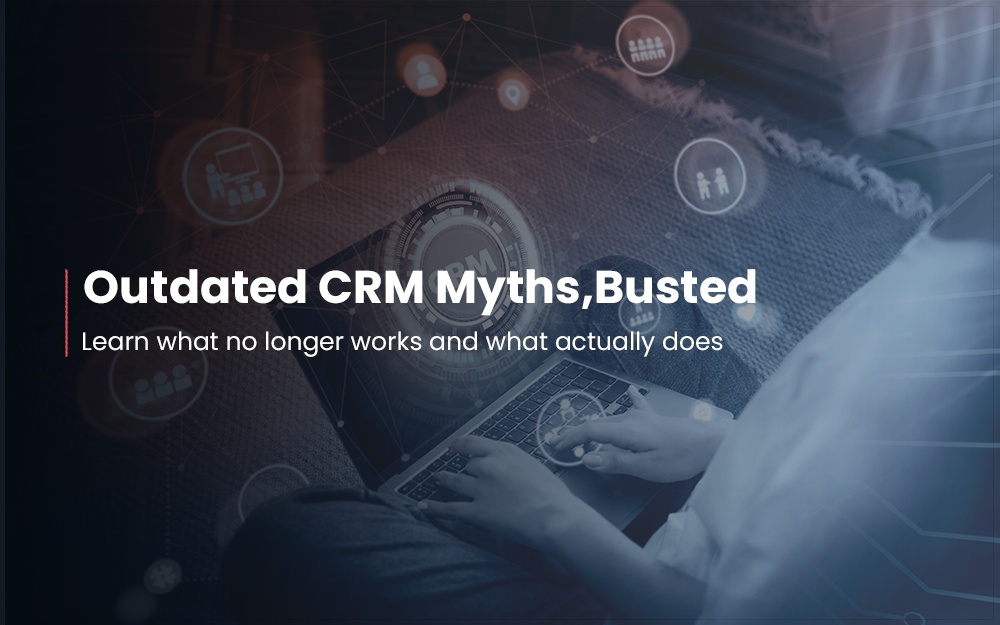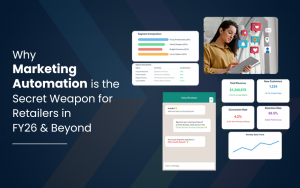Let’s be real, What worked in CRM five years ago just doesn’t cut it anymore.
Your customers have evolved and so should your CRM.
Modern customers expect real-time responses, personalized journeys, and seamless experiences across every touchpoint. For businesses still operating with siloed or outdated CRM systems, the cost isn’t just operational inefficiency—it’s lost revenue and declining customer satisfaction.
Zence, an AI-powered Unified CRM, helps businesses leave behind outdated practices and move toward smarter, more connected customer engagement.
Here’s a look at outdated CRM mantras we’ve officially retired—and the modern, Zence-powered strategies replacing them.
Outdated CRM Strategies vs. Zence-Led Strategy
1. One-size-fits-all messaging works just fine
Zence says, your customers aren’t all the same—your messaging shouldn’t be either. With AI-powered segmentation and dynamic personalization, the platform helps brands send the right message to the right customer, on the right channel, at exactly the right time. Whether it’s email, WhatsApp, SMS, or push notifications—Zence powers personalized customer journeys that actually convert.
2. CRM is primarily a sales tool
Zence consolidates campaign management, customer support, journey orchestration, feedback loops, and loyalty into one cohesive platform. With 360° customer view, business teams gain complete visibility and collaboration across functions.
3. You don’t need real-time data
Zence provides real-time dashboards and AI-enabled analytics that capture customer behavior, campaign performance, and service quality as it happens—empowering faster, data-driven decisions across teams.
4. Manual tracking is manageable
Zence says: Automate everything that doesn’t need a human touch.
Zence automates end-to-end workflows—journey triggers, lead nurturing, service resolution, loyalty fulfillment—freeing up teams to focus on customer strategy rather than operational execution.
5. More tools mean better control
Zence says: More tools mean more chaos—unless they’re unified.
Juggling separate tools for marketing, support, loyalty, and operations doesn’t give you control—it creates silos and slows the process down.
Zence replaces scattered tools with one platform that brings everything together—integrations, multi-channel communication, and a complete view of each customer—so teams work faster and stay on the same page.
6. Feedback comes after the purchase
Zence enables brands to collect real-time feedback through WhatsApp, email, SMS, or in-app prompts. Spot dissatisfaction early, turn it into loyalty, and reduce churn before it happens.
7. CRMs are built for large enterprises
Zence delivers robust, modular CRM capabilities tailored for mid-market, retail, travel, hospitality, healthcare, FnB, and D2C businesses—combining the power of AI with user-centric design to support scale without complexity.
The Business Impact of Outdated CRM Systems
Persisting with disconnected or outdated systems results in:
- Missed conversions due to slow, irrelevant outreach
- Low productivity from manual updates and disconnected tools
- Poor customer experiences that lead to churn
- Lack of visibility across teams and touchpoints
- Inability to scale without breaking processes
Why Zence?
Zence is built to serve the evolving needs of experience-led businesses. With AI at its core, Zence replaces fragmented systems with a unified platform that empowers cross-functional teams to deliver personalized, consistent, and timely customer experiences—across the entire lifecycle.
What sets Zence apart:
- AI-powered journey orchestration across channels
- Real-time analytics and behavioral insights
- Unified customer data from marketing, support, and operations
- Scalable automation to reduce manual effort
- Modular design to fit different business needs and growth stages
The Future of CRM is Unified, AI-Driven, and Built for Seamless & Personalized Customer Experiences
At Zence, every interaction counts. The unified platform brings together marketing, support, loyalty, and operations into one intelligent ecosystem — powered by AI that feels human. The result? Businesses can engage customers with precision, resolve queries faster, reward loyalty meaningfully, and run operations effortlessly.
Experience how Zence turns connections into lasting relationships. Book a demo today.
FAQs
1. What are the common challenges in CRM implementation?
Businesses often face roadblocks like scattered data, poor tool integration, internal resistance to new systems, and lack of proper training. These issues delay adoption and reduce campaign ROI and retention.
2. How does Zence address these CRM challenges?
Zence unifies marketing, support, loyalty, and operations into one AI-powered platform. It simplifies workflows, enhances visibility, and delivers contextual insights through real-time customer 360° views.
3. What makes social CRM difficult to implement effectively?
Many businesses struggle with integrating social channels into their CRM due to fragmented data, lack of real-time monitoring, and difficulty turning engagement into actionable insights.
4. What problems does a CRM typically solve?
A robust CRM eliminates data silos, automates workflows, improves lead management, and helps teams deliver more personalized and consistent customer experiences across touchpoints.



